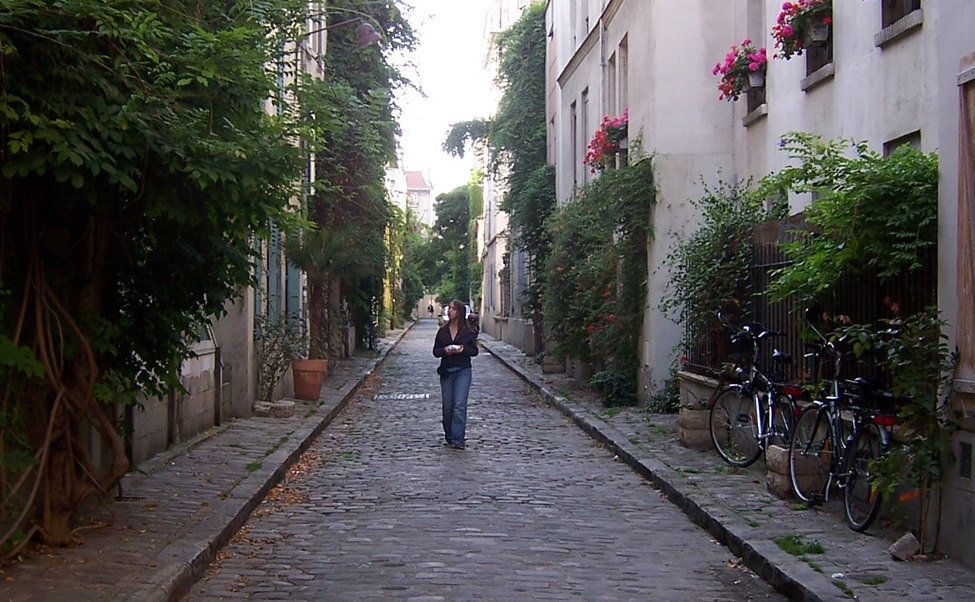XXXIII
Civilization and its incont(in)ents.
HeSheIt cut an improbable figur(in)e.
Raid or trade?
Or, raid, then trade.
Trading as raiding?
Sharp practice, mon amour.
This morning, while ba gua “tree standing,” the question comes: Would your ancestors approve of how you are living your life? You think of your grandparents, the only ancestors whose imaginings you can imagine. Meyer and Helen. Arthur and Annie. And the answer leaks through in the caw of a passing crow: Yes, yes. Probably they would.
1972: Harold Melvin and the Blue Notes record the Gamble and Huff tune “If You Don’t Know Me By Now.”
It’s taken you forty-two years of occasional hearings to recognize the anguish, indeed the despairing quality of the lyrics and their delivery. And how, along with the clear explication of miscarried romance, they could distill into a 7-inch, 45 rpm single, in three and a half minutes, the utter failure of American whites to come to terms with the reality of American blacks, and in consequence, themselves.
If you don’t know me by now
You will never, never, never know me…
All the things that we’ve been through
You should understand me
Like I understand you…
Just get yourself together
Or we might as well say goodbye
What good is a love affair
When you can’t see eye to eye?
Carajillo: a Spanish drink combining coffee with a shot of brandy, whisky, anís or rum. Its name is thought to derive from the Spanish colonization of Cuba, when soldiers poured rum into their coffee para darles un poco de coraje.
Another notion is that dock workers in Barcelona, rather than waiting to drink a separate coffee and glass of liquor, asked for it to be mixed. In Catalan que are guillo means: I gotta go in a hurry.
And then there’s the Italian variation: espresso with grappa, sambuca, or brandy, and known as caffè corretto, literally corrected coffee. Sometimes the liquor is served on the side, either in a glass, or occasionally the bottle, to be added by the imbiber in whatever quantity is, well, correct.
Midmorning, Saturday, on the checkout line at Trader Joe’s. The predicted snowstorm’s begun and though the shelves, particularly the frozen food, is pretty much cleaned out, a further wave of panicked Chelsea-ites descends intent on escaping with the last carton of mango sorbet left in Christendom. You kick your basket ahead of you along the floor with alternate toes, mud stepping. Transfer the weight onto the front leg and then, engaging mingmen push smoothly forward and through with your back leg as though the basket were a cinder block. Don’t come off your root or lean back. Hips move straight ahead as if driven by an invisible, gentle hand at the small of your back. Breathing into dantian. But then, passing the biscuits stacked above the ice cream freezers you just about fall over laughing. There, amidst all else, a neat stack of oblong packages: Cracker Assortment. Well, you and most of the others on line certainly are.
Context, my man, context is all.
My presence, which is of no practical value… is vastly more important than any practical thing I might be doing.
Says Tish Rivers, via James Baldwin in If Beale Street Could Talk.
And Tish’s mother, Sharon, observes, in a throwaway line: People always know the outside better than they know the inside.
Narrated by Tish, here’s how surrounding land lies:
Mama’s face: she too is seeing something she never saw before.
“I couldn’t go around anymore. For the last two days, Jaime got to be my spy, really. They knew his taxi better than they knew him. People always know the outside better than they know the inside. If they saw Jamie’s taxi coming, well that was Jamie. They didn’t look inside.
…So, he borrowed somebody else’s car.”
Selfie or Otherie, either way there is a lens. Either way, a gaze.
Like the cleaver wielded by Prince Wen-Hui’s cook, excellent writing cuts the spaces between things.
Like Duchamp, Baldwin produced no children. In the sense that their enormously powerful work produced no direct artistic lineage.
In his stories, essays and novels, Baldwin wrote the final period. There is no point in trying to recycle him, to produce variations on his singularity, to tap chips off the old block.
Baldwin’s work, however, nourishes very concretely, the artist who realizes that she or he must make – with all homage due to ancestors – one’s own path.
Caminante, says Baldwin in his entirety, no hay camino.
If one accepts this as a benediction, it now falls to you, and you alone – whatever your genes and experience have produced – to read the world, and write as your own Bold One.
What Newton left out:
A body at rest tends to remain at rest [until rest comes to its limit and the body returns to a state of motion. When in turn motion reaches its limit, the body comes to rest before beginning the cycle anew].
Every star is a body.
I want to be your common lore husband.
And I mean that in its full economic sensibility.
Gin a body meet a body…
“Mortgage Servicers’ Practices Lead to Ire” says the headline in the New York Times. Really? Is the Emerald Isle really at the bottom of things?
It takes you a beat to recognize that the invisible “E” has fooled your ear-eye.
Or has it?
When you traveled through the countryside last spring, you did see vast clusters of abandoned, partly-built McMansions waiting, perhaps for hundreds of millennia, to melt into the priceless bog.
Anatomy is density.
Writing as a Daoist practice.
Memoirs of an Elephant
The word is a finger pointing at the moon.
—Daoist proverb
Duchamp. Of the field.
田 = field
Btween engaged and engorged.
Forgotten or never-used, or obsolete slang:
Why he’s gay as the day is long.
Well, ain’t you live as Lincoln!
Kurdsistan: between Iraq and a hard place.
Imago. Iago.
What a difference a nem makes.
Bware white peoples’ enthusiasms.
Jim Crow’s on sabbatical, or retired, no one knows 4 sure. And a literal African-American punches in at the Oval Office every morning. But there are two fifty-something, carrot-tanned white women sitting at Table 4, one wearing an enormous gold peace-sign pendant, and bleeding through the room noise, Etta James over the speakers – Aah-hat laast… – you hear the blonder of the two describe some piece of family real estate as, fortunately not being located “in a bad neighborhood.” So yes, in some parts and circles, “bad” is still the code for…
If you don’t know me by now…
In reading, in writing, in observing the flow of things, what is the quality of your gaze? Of others’?
Song 松 the eyes.
When you subtly relax, slacken, loosen the eye eyes, you can song the voice.
What is the quality of the inner voice.
Make note of the times and situations in which you address yourself in the imperative.
Good morning, merry sunshine!
Found object: a discarded book in a moribund bicycle’s basket – bike and book both ravaged by the elements. The former is missing a seat, the latter coverless, some signatures still stitched together firmly, others hanging on by a thread, some loose and ready to fly off in a stiff breeze. Some missing, already flown?
Pick it up – it’s more or less a bundle – and when you bring it in range your eye falls on a heading: “A Virtual Object Made of Words.” Page 204. The running head says “Art-Experience.”
If Ozymandias, then what of Harriet?
The lie of the mind.
What a diference an f makes.
If you can keep your root when all about you
Are losing theirs and flailing out at you…
You’ve put the bundle of book in a clear ziplock bag horizontally on your bookshelf.
This basket case is a keeper. The Prefatory Note opens with a paragraph of Paul Valéry: “it is more useful to speak of what one has experienced than to pretend to a knowledge that is entirely impersonal, an observation with no observer. In fact, there is no theory that is not a fragment, carefully prepared, of some auto-biography. I do not pretend to be teaching you anything at all. I will say nothing that you do not already know…”
The Seamless Web: Language-Thinking, Creature-Knowledge, Art-Experience. Published by George Braziller in 1970 in New York City. Writ by one Stanley Burnshaw.
But wait, as the TV pitchman used to say, there’s more.

